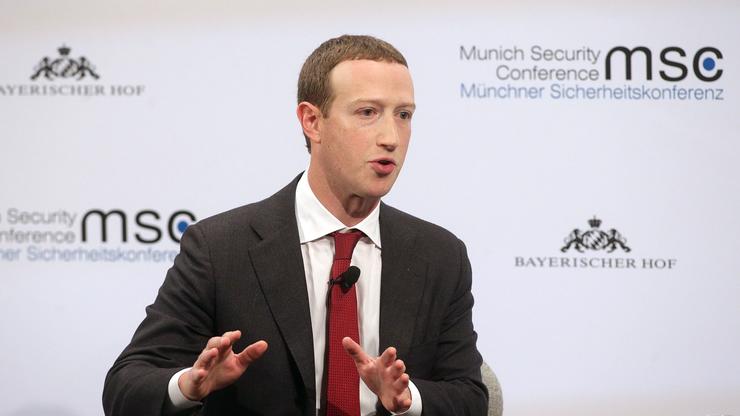Mark Zuckerberg has shared a lengthy statement addressing Donald Trump’s violent posts on social media and why Facebook isn’t going to be removing the president’s horrific messages. Earlier this week, while the protests in Minneapolis against the police killing of George Floyd were already in full swing, Trump took to social media to for looting establishments. Although his remarks garnered the most attention on Twitter, he also reposted them on both Instagram and Facebook.
“I can’t stand back & watch this happen to a great American City, Minneapolis. A total lack of leadership. Either the very weak Radical Left Mayor, Jacob Frey, get his act together and bring the City under control, or I will send in the National Guard & get the job done right,” he wrote. “These THUGS are dishonoring the memory of George Floyd, and I won’t let that happen. Just spoke to Governor Tim Walz and told him that the Military is with him all the way. Any difficulty and we will assume control but, when the looting starts, the shooting starts. Thank you!” His words, in particular the phrase “when the looting starts the shooting starts,” for their threatening and violence-inciting nature. Although , his words were so alarming that Twitter actually hid the tweet that included the aforementioned phrase, a quote attributed to famed segregationist and Miami Police Chief Walter Headley in 1967.
 Win McNamee/Getty Images
Win McNamee/Getty Images
However, his posts on Facebook remain without even a warning of sensitive material. On Friday (May 29th), Facebook CEO Mark Zuckerberg explained why this is the case. “I know many people are upset that we’ve left the President’s posts up, but our position is that we should enable as much expression as possible unless it will cause imminent risk of specific harms or dangers spelled out in clear policies,” Zuckerberg explained. “We looked very closely at the post that discussed the protests in Minnesota to evaluate whether it violated our policies. Although the post had a troubling historical reference, we decided to leave it up because the National Guard references meant we read it as a warning about state action, and we think people need to know if the government is planning to deploy force. Our policy around incitement of violence allows discussion around state use of force, although I think today’s situation raises important questions about what potential limits of that discussion should be.”
However, as pointed out by Complex, this response contradicts a vow Zuckerberg made to Congresswoman Alexandria Ocasio-Cortez regarding politicians using his platform. “If anyone, including a politician, is saying things that can cause, that is calling for violence or could risk imminent physical harm…. we will take that content down,” he declared only a few months ago.
Zuckerberg concluded his statement on Friday by saying: “There are heated debates about how we apply our policies during moments like this. I know people are frustrated when we take a long time to make these decisions. These are difficult decisions and, just like today, the content we leave up I often find deeply offensive. We try to think through all the consequences, and we keep our policies under constant review because the context is always evolving.”
 Drew Angerer/Getty Images
Drew Angerer/Getty Images
“People can agree or disagree on where we should draw the line,” he continued, “but I hope they understand our overall philosophy is that it is better to have this discussion out in the open, especially when the stakes are so high. I disagree strongly with how the President spoke about this, but I believe people should be able to see this for themselves, because ultimately accountability for those in positions of power can only happen when their speech is scrutinized out in the open.”
